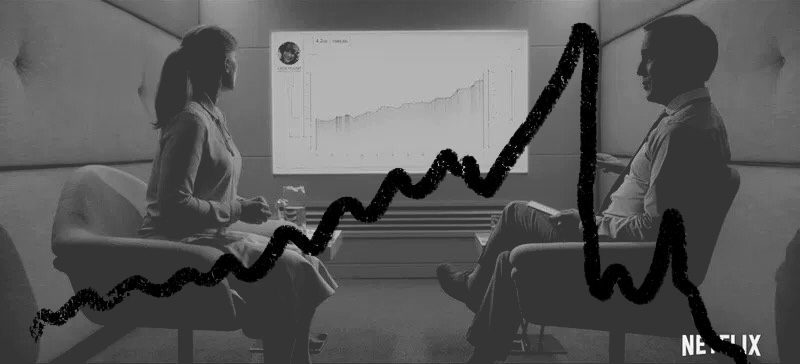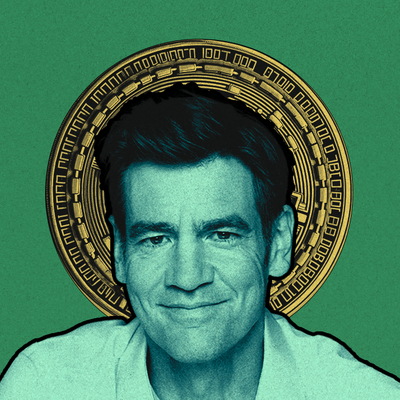
On the fifth and final page of the BitClout “one-pager” there is a line that reveals the big, hairy, audacious goal that animates the controversial new service:
“BitClout is decentralizing social media in much the same way as Bitcoin is decentralizing the financial system.”
What does that mean? Well, to start, BitClout is a website that launched a couple weeks ago and lets you buy “social tokens” that are tied to Twitter accounts, on the theory that if A) BitClout works, and B) the creator rises in popularity, then the price will rise and you’ll be able to sell the tokens at some point in the future for a profit.
(Basically it’s a stock market for people that runs on blockchain technology. It’s like Klout, but publicly tradable.)
One weird thing about BitClout is that most of its top users haven’t actually ever signed up. Their accounts were auto-created, and yet people have spent literally millions of dollars to buy their tokens.
For instance here’s a list of Elon Musk’s biggest shareholders. This is some serious dough!!
Human speculation might be the most startling feature of BitClout, but it’s just the beginning. The thin edge of the wedge, so to speak. They also let users post status updates and view a feed of posts from users they follow. Like a sort of decentralized version of Twitter:
For now the main way to buy and sell BitClout creator coins is on bitclout.com, but, much like Bitcoin, the data that powers the service exists on a public ledger, which means anyone can run their own “node” without permission from anybody, and anyone can view the complete record of all transactions in the history of the service.
In the long run BitClout would like to be not just a complement to Twitter where you can speculate on creators’ success, but an actual substitute. Except instead of all the money going to the platform in the form of ad revenue, creators would have a crypto-native way to monetize. They could offer exclusive content and priority access to token-holders, and similar to NFTs, fans could signal to creators that they really believe in them by buying a bunch of tokens—much more effective than just replying to all their tweets!
One way to look at it is that it transforms the “following” relationship from a binary value into a scalar. This gives you a way to see not just how many people know of and like you (follower count) but also how much each of those people believe in you (how much money they spent investing in your coin).
Personally I’m more interested in what “human speculation” in general means for human beings, rather than specifically whether BitClout is going to be the company to bring this idea to fruition. As of this writing, it looks like BitClout is the front-runner for making this kind of market, but it’s also had a pretty rough launch and may or may not be poised to implode, despite receiving tens and possibly hundreds of millions in Bitcoin investment from Andreesen Horowitz, Sequoia, and other prominent Silicon Valley investors. Long story short: auto-creating accounts is icky, forcing users to tweet to claim their account is icky, and credible blockchain engineers think the service is built on shoddy foundations. My feeling is that this situation is far too volatile to make a bet on specifically.
But a stock market for people generally? That might be interesting. It also might be gross. I’m trying to understand my feelings.
My first reaction is that I don’t like it. I don’t like the idea of having a personal market cap. I don’t like the idea of seeing my stock price surge or tank depending on people’s reactions to my choices. It makes sense in the context of a business, because you can take a step back and say “it’s not me” and derive some self-worth from being a good friend, spouse, parent, etc. What if I want to take a break from public life for awhile for my own mental health? What if my net worth was significantly tied up with my BitClout coin value? That would suck.
Also, I don’t like the idea of comparing my market cap to my friends’. A huge amount of human energy already gets sucked into useless comparisons, and this will only make that worse. To me it’s already bad that people constantly stress about their follower counts. It’s not just about feelings of insecurity. To me the worse and more insidious effect is that people warp their personalities when they start to optimize for a number (be it followers or market cap) and forget about the human beings on the other end of those numbers. You start tweeting and acting in a way that is designed to improve the shape of a graph, rather than to make things better for the people around you. I’ve seen it happen. It reminds me of a chapter from the book Trick Mirror by Jia Tolentino about how people warp and conform their identities around the shape of market demand. I can only imagine this getting worse if creators had to manage shareholders in addition to followers.
But then again, maybe this is just my own discomfort with anything new. Maybe having a share price would actually feel fine, and wouldn’t be any worse than all the metrics I already live by: bank account, follower count, etc. People are surprisingly adaptable. And as bad as it might feel when your stock price goes down, it might feel pretty good and genuine to see a friend invest in you, literally. Maybe this could help creators make more money sooner by giving their biggest fans a way to invest in their success, the same way early-stage startups can raise cash from venture capitalists.
And maybe the social incentives aren’t all bad. For example, an open market would create additional disincentives to certain types of bad behavior. The BitClout “one-pager” uses the example of Elon Musk’s share price plummeting in the hypothetical scenario where he “makes a racial slur during a press conference.” Is BitClout positioning itself as the answer to racism??
Probably not, but it is interesting to consider how public controversy might play out in the future if we had a stock market for people. For instance, when the first inklings of the David Dobrik controversy came out a few weeks ago, what would have happened if there was an easy way to short $DOBRIK? Would we see morality speculators jumping on the bandwagon early in order to profit off of and increase the damage from Dobrik’s failings? One can imagine darker possibilities, too. For example, what would happen to a stock price of a creator when they die? There’s a reason prediction markets are mostly illegal. If you could make a large bet that a certain individual will die in the next year, some zealous gamblers (perhaps deep in debt) might attempt to take action in order to make their bet pay off. It’s less clear how this risk might translate to the “stock market for people,” but I’m not sure if I want to find out.
It’s the second-order effects that to me are the most interesting. Try to imagine a world where everyone has a stock price. How does that shape human behavior? It reminds me of the old Churchill line, which he delivered in defense of preserving the original design of Britain’s parliament building:
“We shape our buildings; thereafter they shape us.”
Of course, we as individuals may not have much control. When I put my strategy hat on, it seems like a stock market for people is inevitable. It has all the hallmarks of the kind of thing that grows fast: network effects, high risk/reward ratio, big entertainment value, ego, greed, etc. I just don’t see how anyone could be excited about this kind of thing without feeling at least a little bit icky about it.
But then again, what do I know? At the time of this writing, my coin is only worth ~$600. If the market is correct you should maybe spend more time listening to Elon ($90k) or Naval ($50k).
Or maybe the market doesn’t know everything.
Thanks to Andy Sparks for prompting this week's column :)
Find Out What
Comes Next in Tech.
Start your free trial.
New ideas to help you build the future—in your inbox, every day. Trusted by over 75,000 readers.
SubscribeAlready have an account? Sign in
What's included?
-
Unlimited access to our daily essays by Dan Shipper, Evan Armstrong, and a roster of the best tech writers on the internet
-
Full access to an archive of hundreds of in-depth articles
-
-
Priority access and subscriber-only discounts to courses, events, and more
-
Ad-free experience
-
Access to our Discord community



Comments
Don't have an account? Sign up!